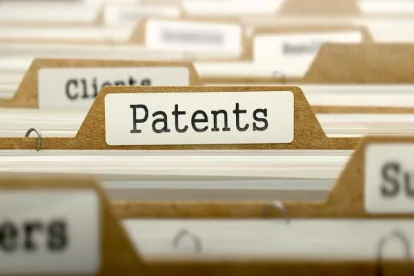Highlighting the significance of procedure, discovery disputes and the limits of judicial discretion, the US Court of Appeals for the Federal Circuit affirmed the district court’s denial of a motion to dismiss for lack of standing and vacated several orders for abuse its discretion. Drone Techs., Inc. v. Parrot S.A., Parrot, Inc., Case Nos. 15-1892; -1955 (Fed. Cir., Sept. 29, 2016) (Schall, J) (Newman, J, concurring).
Drone is a Taiwanese corporation and the assignee of the two asserted patents, which are generally directed to systems for remotely controlled machines. Parrot designs, develops and markets hobby aircrafts, i.e., “drones,” and offers them for sale in the United States. Drone sued Parrot in 2014 alleging indirect infringement. Parrot answered and asserted counterclaims and affirmative defenses. As a sanction for violating two discovery orders, however, the district court struck Parrot’s counterclaims and defenses, which resulted in a default judgment against Parrot as to liability. A jury awarded Drone almost $8 million, and the district court awarded almost $2 million in attorneys’ fees. Parrot appealed.
The first issue on appeal was whether Drone, the assignee, had standing to sue. Before a court may exercise jurisdiction over a patent infringement action, it must be satisfied that, “in addition to Article III standing, the plaintiff also possesse[s] standing as defined by § 281 of the Patent Act.” Parrot claimed that the named inventor and assignor of the patent either did not invent the claimed subject matter or was not the sole inventor, thereby rendering the assignment to Drone null and void. However, the Federal Circuit recognized that there was a “presumption that [a patent’s] named inventors are the true and only inventors” and that lack of standing is not the place to challenge inventorship when the issue can be raised as a § 102(f) defense for misjoinder or non-joinder. In other words, there is no need to address inventorship when considering plaintiff’s standing to sue.
The second issue was whether the district court abused its discretion by entering a default judgment as a sanction. During discovery, in response to a first motion to compel, Parrot was ordered to produce all source code used in its drone. Parrot produced documents including its off-board source code. Drone wanted the on-board source code as well, however, and filed another motion to compel. Parrot objected, insisting that the local patent rules permitted inspection of source code in lieu of production, and filed several requests for reconsideration and for modification of the protective order to include additional safeguards, as well as a motion to stay so that it could file an application for a writ of mandamus. The district court rejected these requests and imposed sanctions. Parrot argued on appeal that these discovery decisions were abuses of discretion.
The Federal Circuit agreed, noting that the district court’s discovery orders controverted the local patent rules, which only required production of documents “sufficient to show” the operation of the accused products, and permitted inspection of source code in lieu of production. The district court’s failure to evaluate the alleged deficiencies in Parrot’s initial production in light of the local patent rules, as well as its refusal to limit Parrot’s production to making its on-board source code available for inspection, was inappropriate.
The Federal Circuit further found that the district court’s default judgment was also an abuse of discretion, because it was a sanction imposed only for failing to comply with discovery orders. Further, the Court explained that default was a “drastic” sanction generally “disfavored absent the most egregious circumstances.”
Despite concluding that vacating the judgment was appropriate, the Federal Circuit engaged in a Poulisanalysis as an alternative ground for vacating the sanction. In its Poulis analysis, the Federal Circuit questioned the district court’s stated need to “penalize” Parrot, because “a court may not enter a default judgment against a defendant who failed to comply with a discovery order as ‘mere punishment.’” In this case, not only was the sanction more stern than necessary to cure the alleged prejudice to Drone, it also did not support the presumption that Parrot was refusing to provide its on-board source code because discovery of that information would have revealed the lack of merit in Parrot’s defense against Drone’s infringement case. On the contrary, Parrot repeatedly offered to make the on-board source code available for inspection.
The Federal Circuit vacated the discovery orders, default sanction and damages award.
In her concurrence, Judge Newman focused on the inventorship issue and urged the district court, on remand, to consider the inventorship, noting that based on the record, the named inventor “merely suggested a result to be accomplished” and might not qualify as an inventor. Newman emphasized that in her view “a substantive examination of inventorship” is necessary to resolve standing where the plaintiff’s claim to title is otherwise not in dispute, since an “incorrect inventor or inventive entity cannot pass title by assignment.”
Practice Note: Practitioners should heed the advice of the Federal Circuit, which stated that Parrot could and should have taken the position that it would not produce the on-board source code without additional protections and then ask for an immediately appealable sanction.




 />i
/>i

